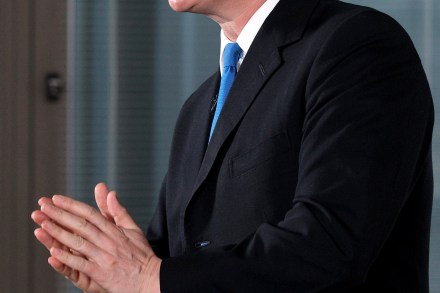Eric Pickles kickstarts the local blame game
We’ve got lots of power – please take some. That’s the central message of today’s localism bill, and of Eric Pickles’ article in the Telegraph to accompany it. Indeed, the government’s 15-page document to explain the bill features the word “power” (in the context of shifting power away from the centre) over 50 times. Eight of those come in Nick Clegg’s short, Lib Dem-friendly foreword. The specifics of the bill are, on the whole, already familiar. It’s all about elected mayors, local referendums and greater budgetary control for councils. But just because we’ve heard this drumbeat before, it doesn’t make it any less radical. As the BBC’s Mark Easton notes,















